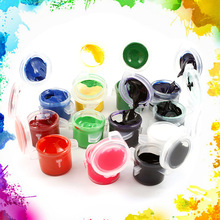Google bans slew of malicious Android photo and beauty apps
Google has removed dozens of popular fake photo apps meant to hurt its users.
Security firm Trend Microdiscovered 29 malicious apps that were listed on the official Google Play store, all advertised as “beauty camera” applications. The apps have since been removed by Google.
The photo apps carried out a number of nefarious activities on Android devices which they were installed to. Some of the apps would load up a full-screen advertisement for fraudulent or pornographic content every time a user unlocked the device. Other apps in the batch would forward users to phishing websites that tried to steal their personal information. Sometimes attempts to steal users email or phone number were hidden under the guise of claiming a prize.
Trend Micro points out that even technically legal content, such as pornography, promoted by these apps were a scam. In their investigation, the security analysts paid for an adult video player pushed by the apps, which did not play any content.
Another batch of beauty apps went even further. Trend Micro discovered that a few of these photo filter apps that promised to “beautify” users’ pictures were actually stealing the photos. The app would upload a user’s photo to a private server. Instead of providing a filtered version of the pic in return, the app would display a picture with a fake message telling them they need to update the app. Trend Micro believes these stolen photos are used for other malicious activities, such as social media photos on fake accounts.
SEE ALSO:'Fortnite' vulnerability put millions of accounts at riskThese apps were made to be incredibly difficult to catch. The developers behind them used compression archives, also known as “packers,” which basically make them hard to analyze. In addition, there’s no indication to a user that these apps were responsible for the pop-ups being shown on their Android phone. If a user were to attempt to uninstall applications in order to find the culprit, they would come across a problem there too. These fake beauty apps were hidden from a user’s application list.
In total, the 29 malicious apps were downloaded more than 4 million times. Three of the apps alone accounted for more than 3 million of the downloads.
This is far from the first time that malicious Android apps found their way to the Google Play store. While these apps have since been removed, the sheer number of downloads proves that Google simply isn’t moving fast enough to shut them down.
Featured Video For You
It's surprisingly easy to be more secure online — Clarification Please
(责任编辑:行业动态)
 Webb telescope just snapped image of huge black hole gobbling material
Webb telescope just snapped image of huge black hole gobbling material Skiers train at Masikryong
Skiers train at Masikryong Tottenham's Iwabuchi axed from Japan squad
Tottenham's Iwabuchi axed from Japan squad US strategic assets scramble to Korean Peninsula
US strategic assets scramble to Korean Peninsula How much for Oasis tickets? Fans joke about splurging on reunion shows
How much for Oasis tickets? Fans joke about splurging on reunion shows
- I went to an offline dating event for singles. Here's how it went.
- How British
- Korea establishes disaster response center in typhoon
- US Open returns to Los Angeles amid new upheaval
- 23 Peculiar Places of 2023
- Mbappe’s PSG future in major doubt
- Moon vows to give nation more rest
- 4 new iPhones could have 5G in 2020, but not the same kind of 5G
-
Trump won't stop making a deceptive bird claim. Experts debunk it.
 Billions of birds are likely killed in the U.S. each year — but contrary to popular claims, wi
...[详细]
Billions of birds are likely killed in the U.S. each year — but contrary to popular claims, wi
...[详细]
-
Richard Branson champions the unique strengths of dyslexia
 Richard Branson's latest quest is to get the world to perceive people with dyslexia in a totally dif
...[详细]
Richard Branson's latest quest is to get the world to perceive people with dyslexia in a totally dif
...[详细]
-
 / Graphic by Lee Jong-eunPyongyang to send delegation for Olympics closing ceremonyBy Kim RahnThe ch
...[详细]
/ Graphic by Lee Jong-eunPyongyang to send delegation for Olympics closing ceremonyBy Kim RahnThe ch
...[详细]
-
Elon Musk testified for 3 long hours about his 'pedo guy' tweet
 While testifying in U.S. District Court Tuesday, Elon Musk had to square off against one of his wors
...[详细]
While testifying in U.S. District Court Tuesday, Elon Musk had to square off against one of his wors
...[详细]
-
Pressure boost squeezes out more hydrogen from artificial leaves
 Hydrogen-producing artificial leaves might soon be even better at their jobs thanks to a new study t
...[详细]
Hydrogen-producing artificial leaves might soon be even better at their jobs thanks to a new study t
...[详细]
-
Finally! BTS open individual Instagram accounts
 The seven members of BTS launched individual Instagram accounts today, Dec. 6, and it goes without s
...[详细]
The seven members of BTS launched individual Instagram accounts today, Dec. 6, and it goes without s
...[详细]
-
 市区众多新楼盘的开盘,不但打破了房产市场供需平衡,同时也给二手房市场带来了巨大的冲击。在此背景下,市区二手房交易受到了不小的冲击。不少市民认为,新房从很多方面与二手房相比,都有其明显的优势。二手房主预
...[详细]
市区众多新楼盘的开盘,不但打破了房产市场供需平衡,同时也给二手房市场带来了巨大的冲击。在此背景下,市区二手房交易受到了不小的冲击。不少市民认为,新房从很多方面与二手房相比,都有其明显的优势。二手房主预
...[详细]
-
Google's cofounders are no longer running Alphabet
 It's the end of an era for Google and Alphabet. Google's two cofounders, Larry Page and Sergey Brin,
...[详细]
It's the end of an era for Google and Alphabet. Google's two cofounders, Larry Page and Sergey Brin,
...[详细]
-
iPhone 16 Pro new color will reportedly be Desert Titanium
 Apple's upcoming iPhone 16 Pro will come in a new color, a new report claims, and it will be sort-of
...[详细]
Apple's upcoming iPhone 16 Pro will come in a new color, a new report claims, and it will be sort-of
...[详细]
-
 North Korean reporter Kim Kang-kuk reacts violently to a rally by activists condemning the poor huma
...[详细]
North Korean reporter Kim Kang-kuk reacts violently to a rally by activists condemning the poor huma
...[详细]
- 29 Dive Bars, Saloons, and Taverns Where the Vibe Is Unbeatable
- Pence condemns NK brutality in meeting with defectors
- Wind energy blows away coal
- The "Birds Aren't Real" guy trolled a Chicago news station and fake puked on live TV
- 高燃!哨响表停赛不止,2024广东“村BA”开赛在即,一分钟带你重温高光瞬间。
- Backlash ensues over the late Stan Lee's Twitter account hawking NFTs
- 新楼盘不断开盘 二手房受到冲击


